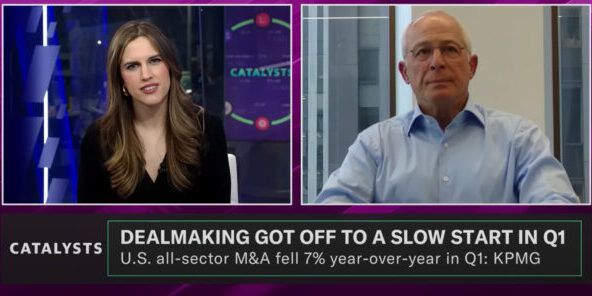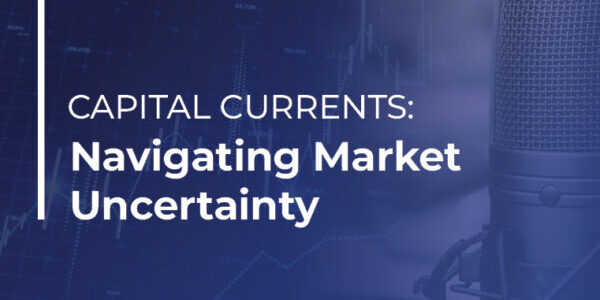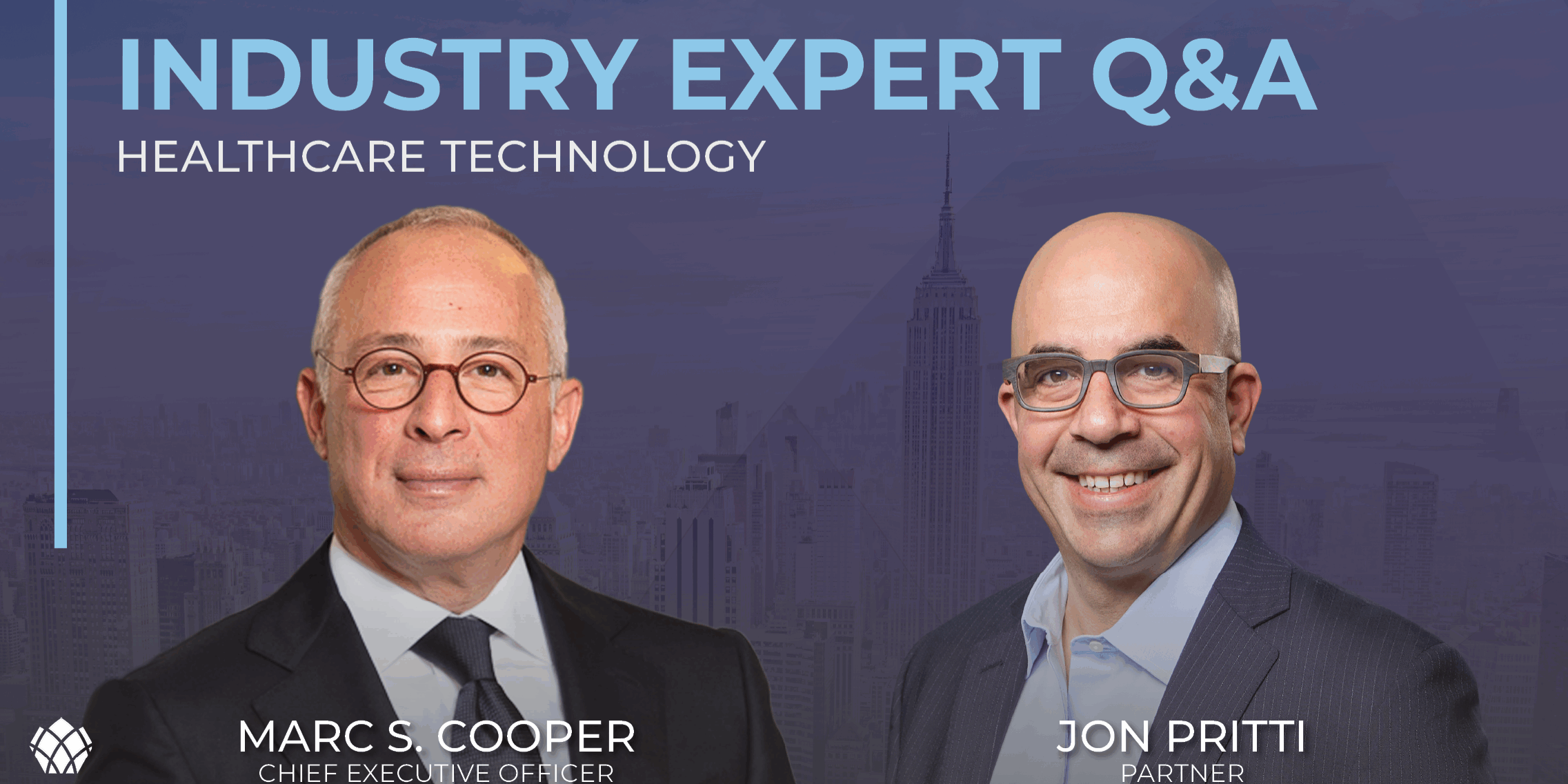Industry Q&A – Marc Cooper with Michael Vinciguerra
Q&A – Marc Cooper with Michael Vinciguerra
by CEO Marc S. Cooper
The waste sector has been a bright spot for M&A activity over the past several years, and with the push toward sustainability, investors are especially interested in several subsectors. This month, I spoke with Michael Vinciguerra, Managing Director in Business Services, who specializes in Environmental and Industrial Services. Mike recently interviewed six top executives from leading waste management companies. He shared his outlook on the sector in a Sustainable Waste Solutions Report, featuring insights into emerging technologies and trends, notable private equity transactions, and more. Here are excerpts from my conversation with Mike.
The waste sector has continued to see strong M&A volume even in a slower M&A environment this past year. Why is that and what makes the sector so attractive?
During the pandemic, private equity took an outsized interest in non-discretionary services, waste management among them. Since then, investors have continued to favor the waste sector due to their critical service and regulatory elements, as well as its demonstrated resiliency and pricing power in an inflationary environment. Infrastructure funds have especially zeroed in on the sector, and we expect the asset class to remain active in 2024 and beyond.
When you layer in the growth potential brought on by an increasing focus on sustainability, it makes investment in the sector even more attractive. Fortune 1,000 companies are making commitments to stakeholders, which drives a bigger push toward waste solutions that increase recovered and recycled volume and reduce carbon footprints.
Clients across the firm talk about sustainability and report on it, but your clients in the waste sector are on the front lines. What are you seeing out there?
The focus on sustainability ranges meaningfully, but, overall, we see large companies reporting on sustainability in some fashion, and a growing number that are setting targets and actively investing in changes.
Our clients often say their customers in consumer products (particularly food and beverage), European automotive and REIT sectors have a distinctive focus on sustainability, so solutions need to be tailored accordingly. We are also seeing U.S. cement producers aggressively trying to decarbonize by utilizing certain waste streams as an alternative fuel source, a common practice in Europe.
The definition of sustainability is also shifting. Until recently, there was a strong focus on zero waste-to-landfill. There are still plenty of companies in that camp, but we’re now seeing a greater number taking a holistic approach to sustainability, including emphasizing emission reduction.
Regulatory actions are also picking up steam. State and local actions are starting to take hold to divert organic waste, particularly food and vegetation waste, from landfills as they are high contributors to methane emissions. And, of course, PFAs, or “forever chemicals,” remain a priority, with several states enacting regulations, as well as the EPA proposing the first-ever drinking water standard to reduce exposure to the harmful substance.
More than anything, shifting customer preferences and regulatory dynamics underscore the need for waste companies to be solution-oriented and not anchored to a single approach, and the most successful companies are doing just that.
How much are customers valuing sustainable alternatives for waste services vs it being a “nice to have?”
I think we’re fast approaching a tipping point. Companies are continuing to approach these decisions from a cost perspective, but sustainability is steadily gaining ground and, at a minimum, becoming a factor at the decision-making table.
Companies that combine a real and quantifiable sustainability element with compelling economic value will be at a significant advantage in the waste sector for many years to come. Whether investing in waste-to-value infrastructure, being a consultative partner, and/or offering advanced data capture and reporting, an increasing number of companies are leveraging their capabilities and capitalizing on emerging trends to increase their market share.
Technology is having a huge impact on many industries. What are some of the technological advancements that excite you when thinking about the future of sustainable waste?
Overall, the need for companies to track their progress in reaching sustainability targets has created opportunities for waste companies to develop advanced data collection and reporting systems.
On the hardware side, we are seeing excitement around smart-bin technology, which enables improved route efficiency, real-time tracking of volumes and, ultimately, reporting of diversion rates and emissions savings. Advancements in MRF automation, including optical sorters and AI, are also helping to reduce contamination and increase diversion.
We are also seeing emerging waste streams from renewable energy/decarbonization efforts. Cleaner energy sources such as lithium-ion batteries and wind turbine blades require special processing techniques to avoid negative environmental impacts, and that need for infrastructure is driving significant investment into the sector.
In addition, we are hearing renewed talk of modular gasification and pyrolysis systems at the plant level, which requires investment but could help companies achieve zero-waste and net-zero carbon initiatives.
Heading into 2024, what is your forecast for M&A activity in the waste sector and sustainable waste solutions in particular?
While 2023 won’t reach the same level of M&A activity as 2021/22, we saw the completion of several deals in the sector at attractive values. My sense is that heading into 2024, sellers with premium assets have more confidence in where the market is given the recent trades and pause in Fed rate hikes.
We are likely to see the launch of several processes that have been in a holding pattern, which could be a sign of a larger push toward returning more capital to LPs. Investors continue to eye sustainability-driven waste platforms, and we expect robust interest in several wastewater, organics, and asset-light managed waste service businesses set to launch in the new year.
We also saw healthy volume among founder-owned businesses this past year, even in the absence of a major catalyst such as changing tax rates. What’s more, we’ve found that the competitive strain of higher equipment, labor and capital costs, as well as typical succession-planning issues, has propelled continued activity in the lower middle market.
Strategics remained active for tuck-in acquisitions, but private equity recapitalizations seemed to resonate with founders seeking to generate liquidity while retaining the opportunity for a second bite of the apple. We expect more of the same in 2024 and beyond, so ample opportunity for investors to acquire initial platforms and others to build scale.
You can learn more about the trends and issues impacting the waste management sector in my recent Sustainable Waste Solutions Report.





